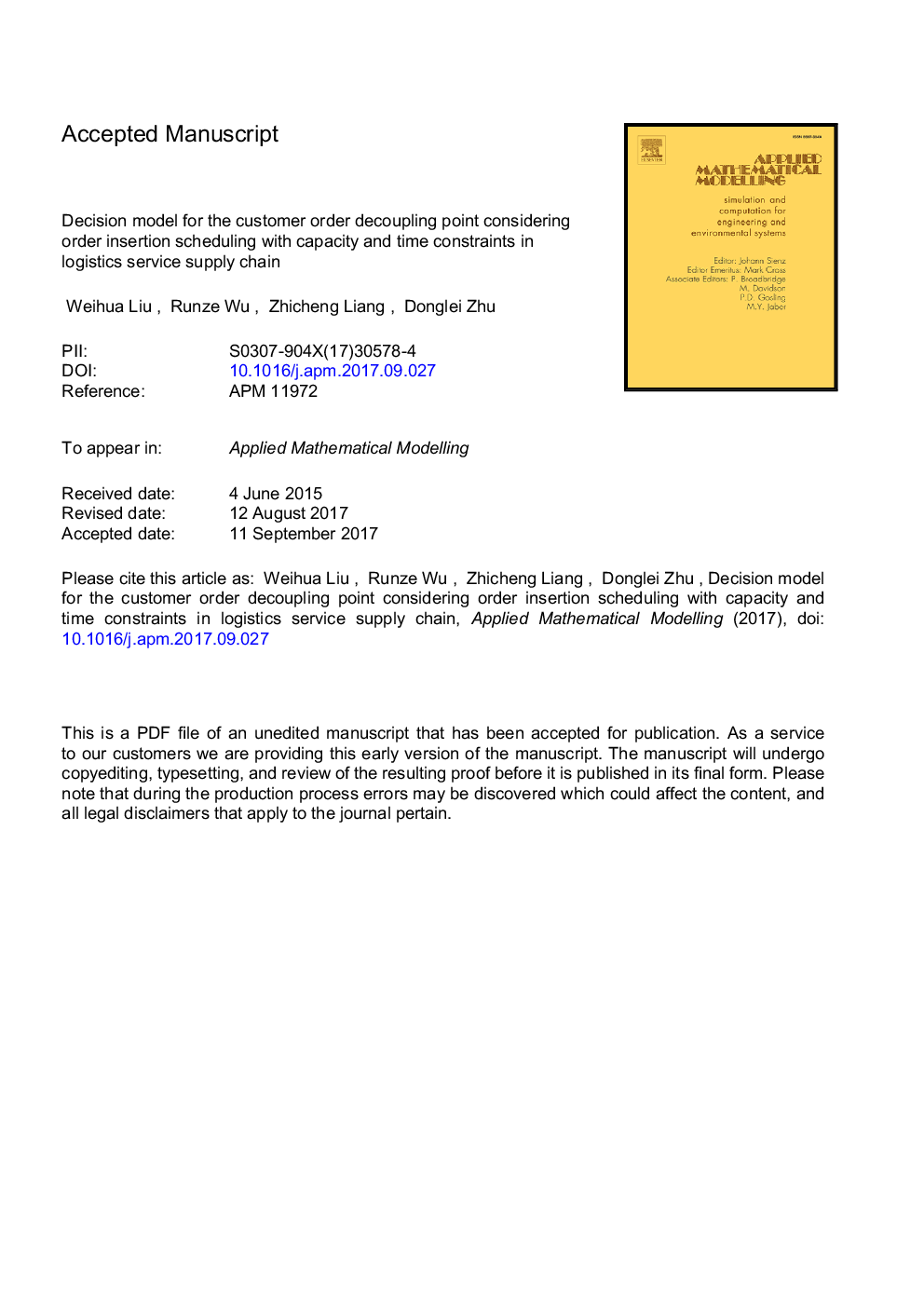| Article ID | Journal | Published Year | Pages | File Type |
|---|---|---|---|---|
| 5470765 | Applied Mathematical Modelling | 2018 | 49 Pages |
Abstract
In the context of mass customization logistics service, we explore how a new inserted order affects the logistics service integrator (LSIs) decision regarding the location of the customer order decoupling point (CODP). Considering a two-echelon logistics service supply chain (LSSC), consisting of an LSI and several functional logistics service providers (FLSPs), we establish a CODP decision model based on time scheduling with capacity and time constraints. The optimization objectives of the model include minimizing the average unit operation cost for the LSI and maximizing the average satisfaction of the FLSPs. In order to verify the viability of our model, with specific data derived from the daily scheduling operation records of the Baoyun Logistics Company, we perform a numerical analysis using genetic algorithms based on multiple datasets where a single parameter is changed each time while the other parameters remain unchanged. The results show that the CODP moves earlier with the increase of the volume of new order. Furthermore, as the new order's similarity coefficient increases or the new order's completion time requirement is relaxed, the CODP moves later in the LSSC. With a given similarity coefficient or time patience variance related to the new order, the maximum insertion volume decreases and the CODP moves later in the LSSC.
Related Topics
Physical Sciences and Engineering
Engineering
Computational Mechanics
Authors
Liu Weihua, Wu Runze, Liang Zhicheng, Zhu Donglei,
